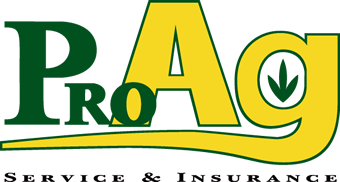2020 & 2021 Whip+
- October 27, 2021
- Posted by: Daniel Lefstad
- Category: News
As many of you have heard, the continuing resolution that extended the disaster assistance programs (including WHIP+) for 2020 and 2021 was signed into law on September 30th. The law appropriated $10B for 2020 & 2021 crop losses for producer’s across the country that have experienced severe weather conditions. Some of the key highlights are described on the following WHIP+ Fact Sheet Click Here. One of the differences noted from the 2020/2021 Fact Sheet vs the 2018/2019 Whip+ program is that the new program will account for the premiums the producer has paid for either their MPCI/NAP coverage.
As you may recall, the 18/19’ Whip payment formula = the expected value of the crop x the WHIP factor – the actual value of the crop harvested x the payment factor (1 if harvested) – the crop insurance indemnity received by the producer. The expected value of the crop for the 18/19 WHIP payment was based solely on the spring/base price for crop insurance. If the implementation remains the same for 20/21 WHIP+, a number of producer’s with revenue insurance will receive a WHIP+ payment that is greatly reduced since the crop insurance indemnity they received is based on a higher fall price and is subtracted from the value of the crop which is calculated using the lower spring/base price.
As the harvest price for all commodities is higher than the spring/base price, if the implementation is not changed, your calculated WHIP payment may be quite a bit less than you are anticipating. Below is a wheat example where the harvest price settled at 41% higher than the initial MPCI spring price:
2021 WHEAT EXAMPLE with MPCI Revenue Protection policy using the 18/19 formula:
*RP (Revenue Protection) Example: Spring Wheat; Producer Insures at 75% Revenue Protection (RP) coverage; Spring/Base Price $6.53; Harvest Price of $9.21 (Established in September)
- WHIP Expected Value: APH of 60 bushel x 6.53 (base/spring price) = exp value $391.80
- Whip Factor: 92.5% (18/19’ factor – look like it will be less for 20/21 Whip)
- WHIP Actual Value: Producer harvests 20 bushels of Wheat x 6.53 = $130.60
- Crop Insurance Indemnity: 60 x 75% = 45 bushel guarantee – 20 bushels produced = 25 bushel shortfall. Harvest price* = 9.21 per bushel; 25 bushel shortfall x 9.21 harvest price = $230 indemnity.
- WHIP+ Calculation (using current formula)
- (Exp value) $391.80 x (Whip Factor 92.5%) = $362.42 – $130.60 dollars (Value Crop Harvested) x payment factor of 1 – (crop Insurance indemnity) $230.25 indemnity = $1.57/ac WHIP Indemnity Payment
The WHIP calculation above uses the spring/base price to calculated the expected value of the crop but the indemnity, which is based on a higher harvest price is subtracted from it which basically takes this producer out of a WHIP loss.
- If the harvest price was used to calculate the WHIP+ payment (like it is on a RP policy), the formula would be as follows:(Exp value) 60 x 9.21 Harvest price = $552.60 x (18/19’ Whip Factor of 92.5%) = $511.15 – 184.20 (Value Crop Harvested 20 bu *9.21) x payment factor of 1 – (crop Insurance indemnity) $230.25 indemnity = $96.70/ac WHIP Indemnity Payment
We have reached out to the office of ND Senator John Hoeven and MN Representative Michelle Fischbach’s as well as a few ag lobbyist to make them aware of this issue and requested that the harvest price be used in the WHIP calculation for producer’s that purchased Revenue Protection. We urge you to contact your legislators ASAP and let them know that you’d like the harvest price used for the 20/21 WHIP+ for those producers that are purchasing the Revenue Protection policies.
MN Senators & House of representatives link with email and phone numbers :
- Senator Amy Klobuchar: 202-224-3244 or email at the following link: https://www.klobuchar.senate.gov/public/index.cfm/email-amy
- Senator Tina Smith: 202-224-5641 or email at the following link: https://www.smith.senate.gov/share-your-opinion
- Representative Michelle Fischbach: 202-225-2165 or email at the following link: https://fischbach.house.gov/contact
ND US Senators & House of represnetatives link with email and phone numbers:
- Senator John Hoeven: 202-224-2551 or email at the following link: https://www.hoeven.senate.gov/contact/email-the-senator
- Senator. Kevin Cramer: 701-232-5094 or email at the following link: https://www.cramer.senate.gov/contact/contact-kevin
- Representative Kelly Armstrong: 701-353-6665 or email at the following link: https://armstrong.house.gov/contact/email-me
As your risk management partner, we are looking out for your best interest, not only in crop insurance but also the other USDA programs that affect your bottom line.
Please contact our office at 218-935-2700 if you have any questions regarding the above.
